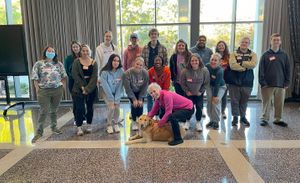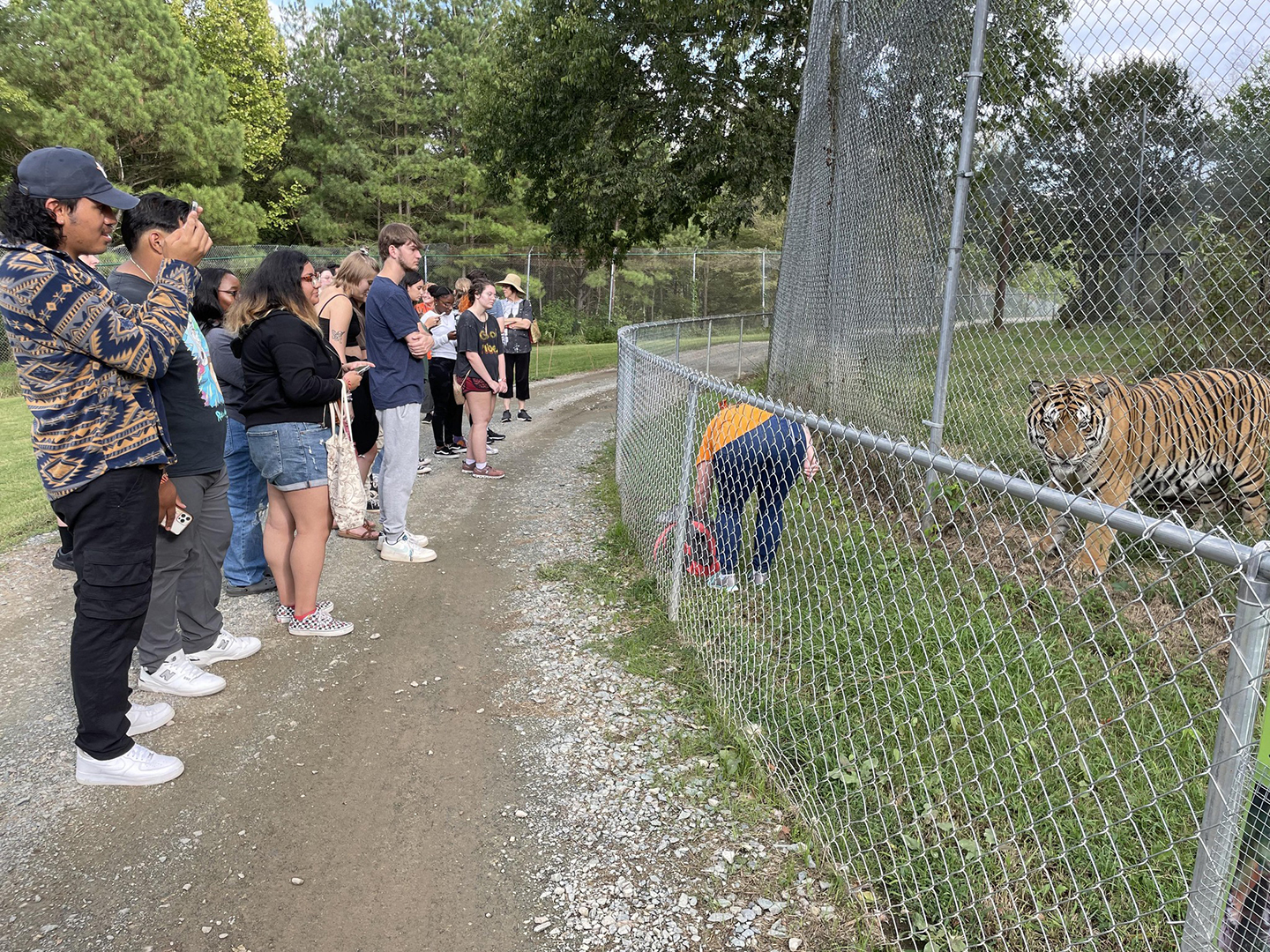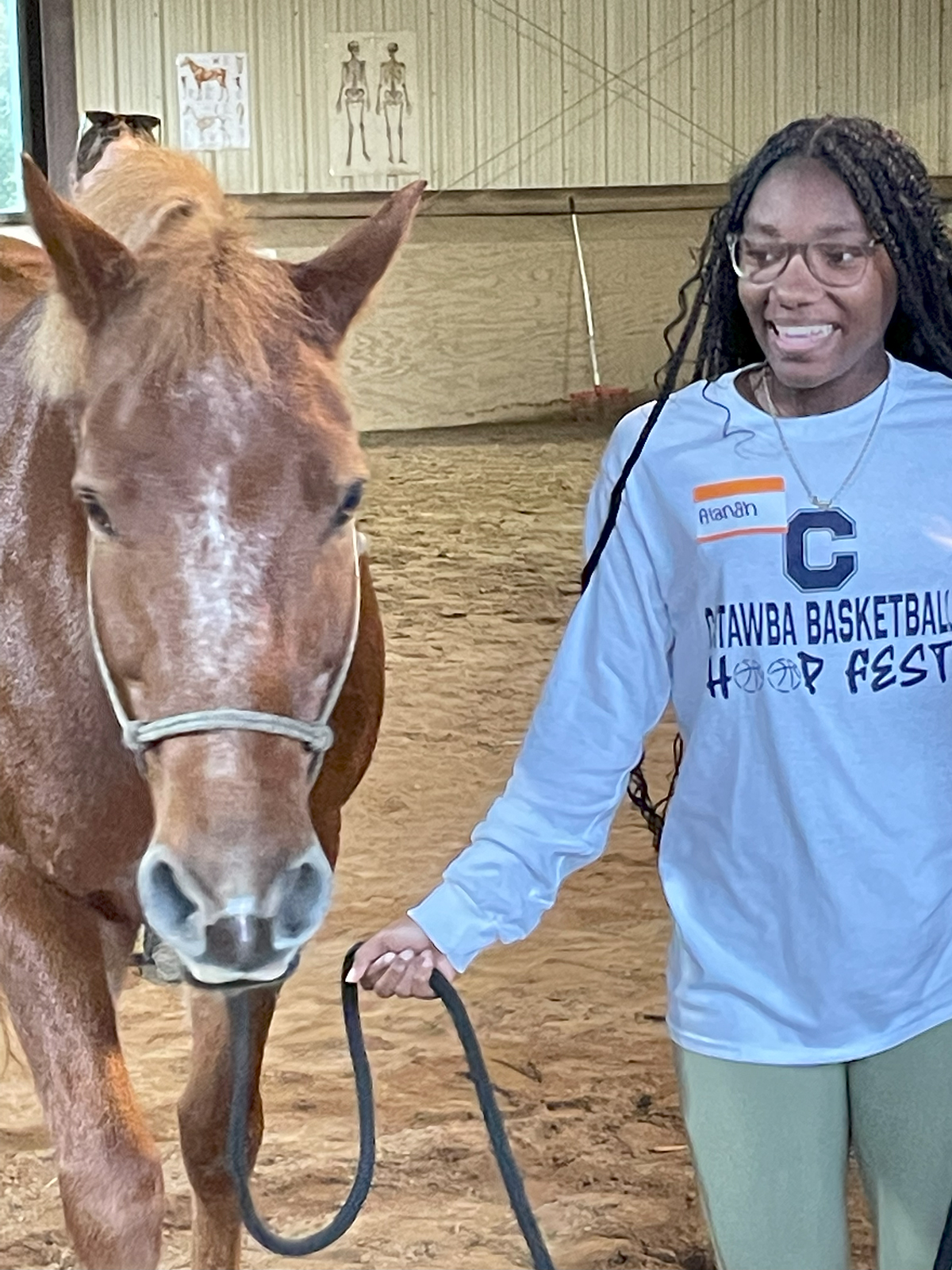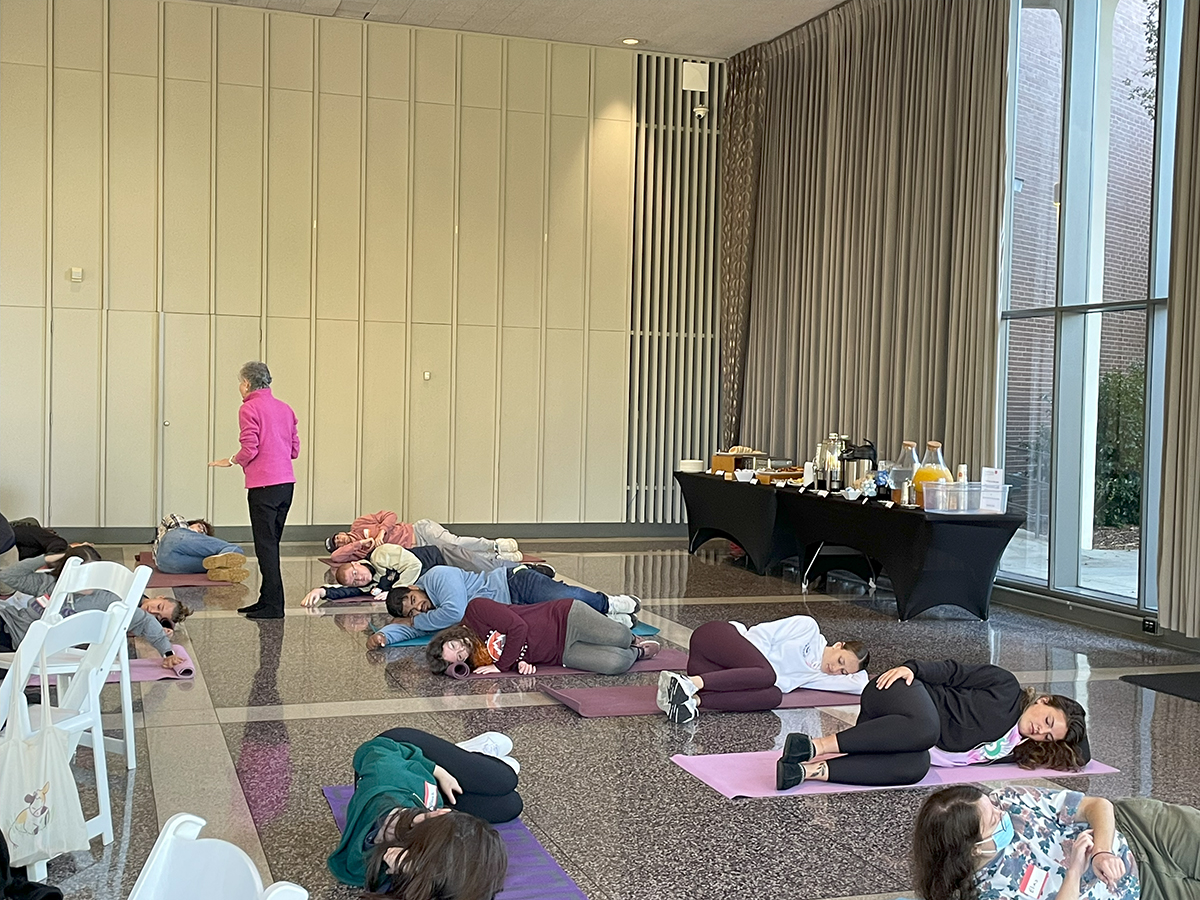
Trips included an excursion into the Stanback Ecological Preserve led by Catawba professor Dr. Joe Poston to study bird communication, attending “Bugfest” in Raleigh, NC, and an outing to Carolina Tiger Rescue in Pittsboro, NC. The varied experiences made an impression on the students, notably a visit to Partnership Dressage in Mooresville, NC, and an on-campus workshop with Mary DeBono, a Feldenkrais practitioner from San Diego, California who is well-renowned for her work with dogs and horses.

Several students had never been close to a horse, and they were nervous, excited, and scared to work directly with a horse named Seneca while at Partnership Dressage. Trainer Elaine Hayes shared techniques and understanding of how horses communicate and how she trains them in dressage, an equestrian event that is very exacting in horse-and-rider performance and is likened to a highly choreographed dance. Partnership Dressage employs an entirely cooperative approach with horses. Each of the students learned how to work with Seneca.

“Watching Elaine work with Seneca and then with us was interesting because you can see the trusting bond that she shares with Seneca and then taught us how we can build and maintain that bond,” said Michaela Lantz, a Catawba junior. “I had been used to just getting the horse to do what I want it to, but it was really cool to work on ‘getting the horse on the same page’ and having them agree to what I wanted to do together.”
“Probably the most interesting thing I learned while there is that horses can read you so well, it's like they're psychic,” observed junior Sam Vincent. “They will interact with you only if you become self-aware of what you're doing, as well as what you're feeling at the moment. At first, I didn't quite buy it, but as time went on, and as I got to see various classmates lead the horse, I realized she was right.”
In Mary DeBono’s Feldenkrais workshop, Mary led the students through exercises to explore and expand their own range of motion. She also demonstrated techniques assisted by Ollie, Dr. Rudolph’s dog, and related accounts of physical recoveries of several animals with whom she had worked, including a dog in whom she reversed partial paralysis. Some students found the workshop not only eye-opening, but mind-and-body changing.

Sophomore Jacy Noble shared, “If I am being honest, I would have been skeptical of her profession and her ability to make paralyzed animals walk again if I had not been able to experience a small part of her work myself. Whilst performing her exercises, I could tell that she was encouraging me to move my body in ways I have not moved in a while. This was surprising to me because I am a tennis player. I would have thought for sure that I have moved my shoulder as many ways as it can go, but I realize now that her methods are intentional while my sport is often mechanical.”
“As a dancer, I think that the workshop could prove helpful to my own health, and the health and mobility of my joints, especially after injuries or difficult workouts,” said Sarah Bedini, a junior.
Junior Emma Jackson looks forward to applying what she learned to help her beloved 17-year-old dog. “For the most part, he is very healthy, but my family has been noticing that it’s getting harder for him to jump on the couch or go up the stairs, so knowing that there was a way to help him without spending hundreds of dollars on medical treatments was a huge relief.”
“I loved having the chance to learn about these alternate methods of relieving joint pain,” added sophomore Katherine McDermott. “All in all, it's given me a new look on improving oneself, teaching me that improvement does not equal pain, which is what I have thought for a long time.”
